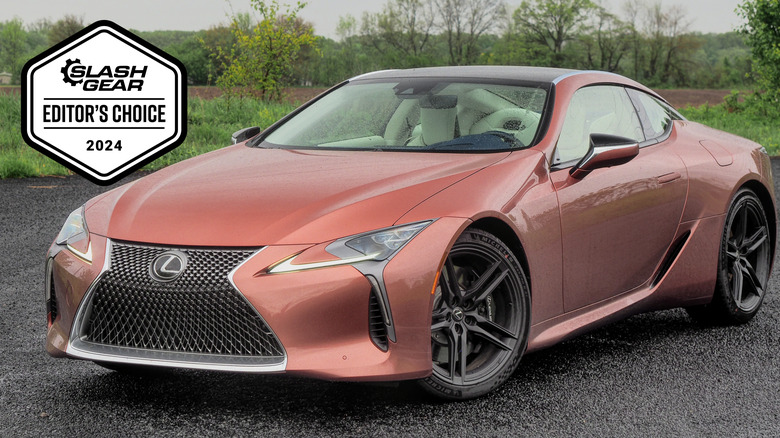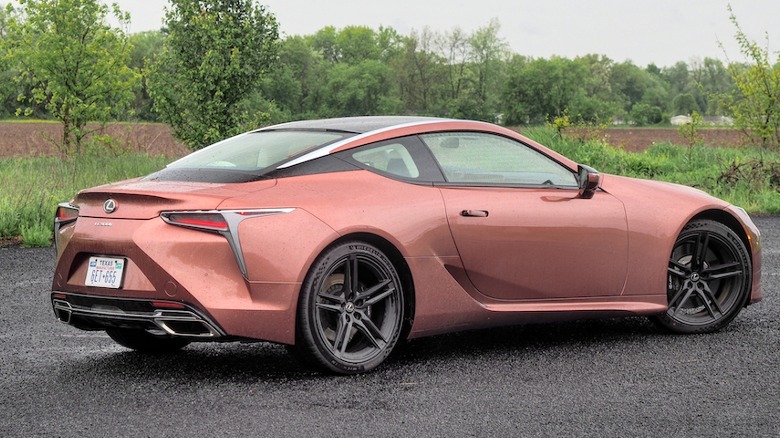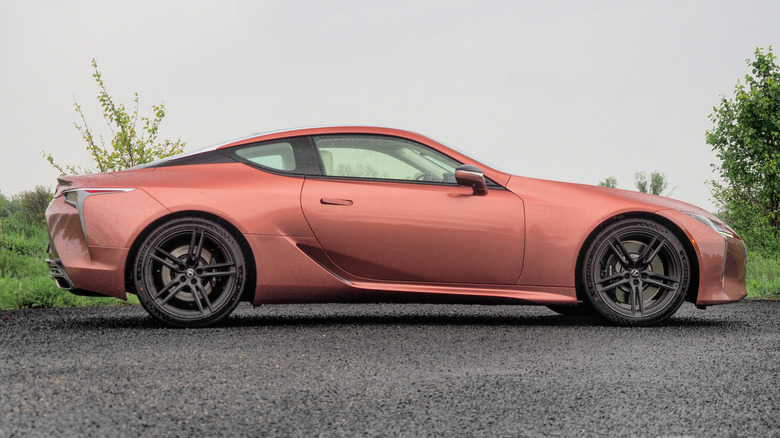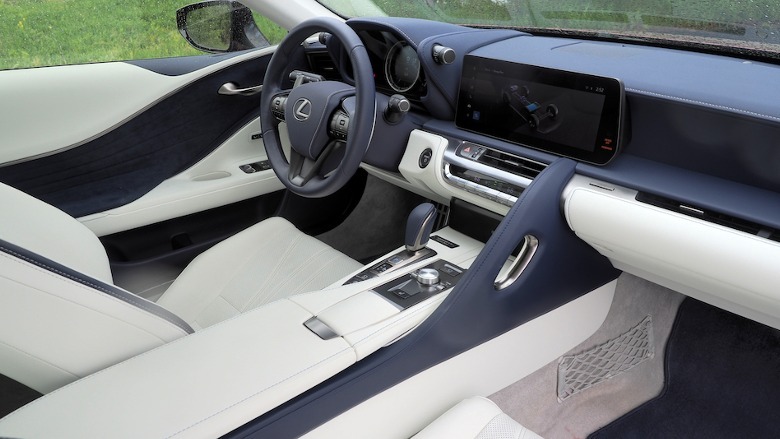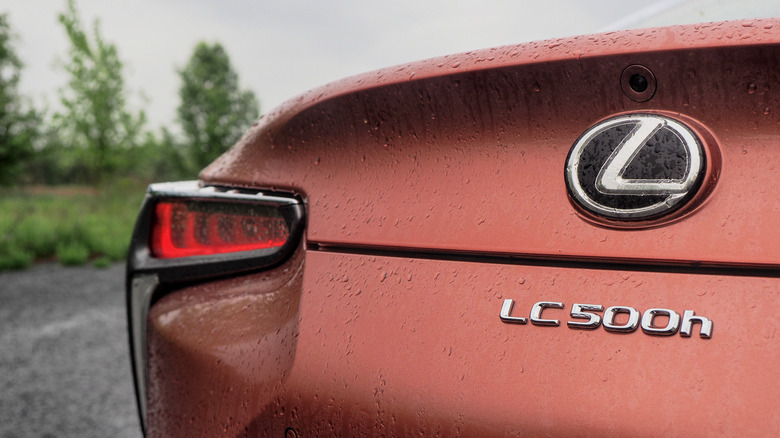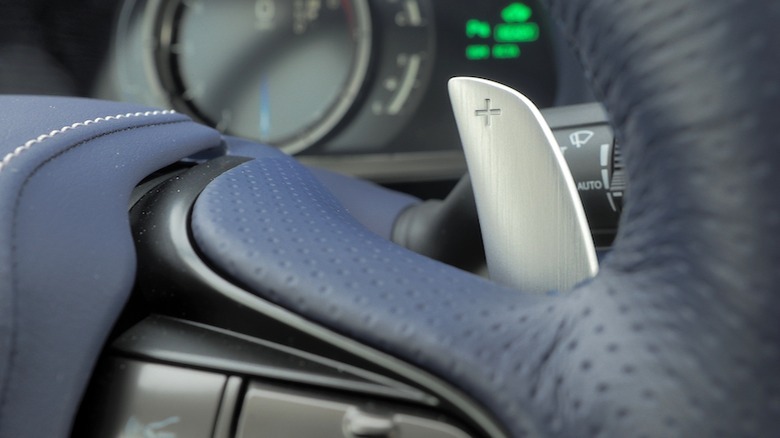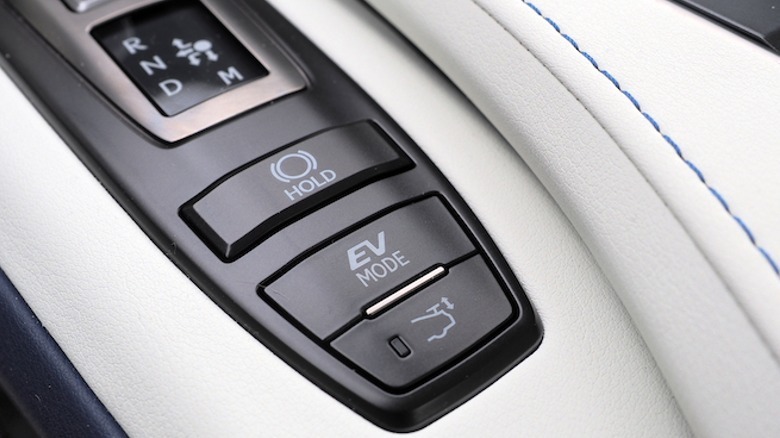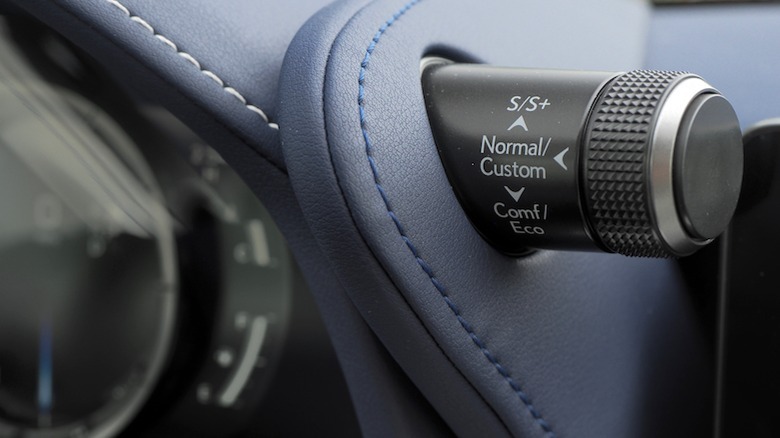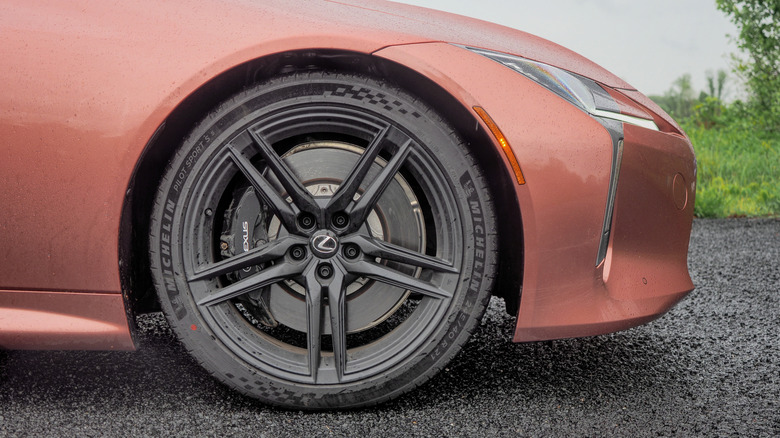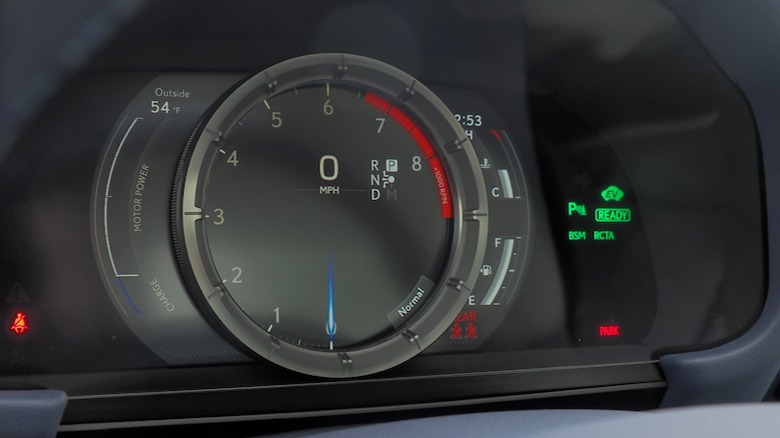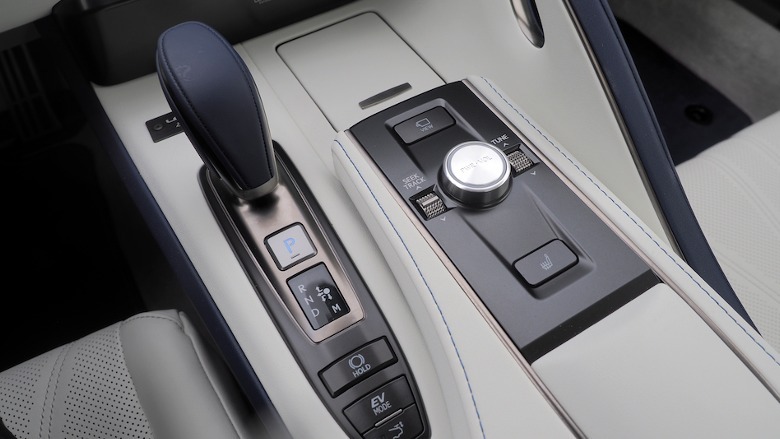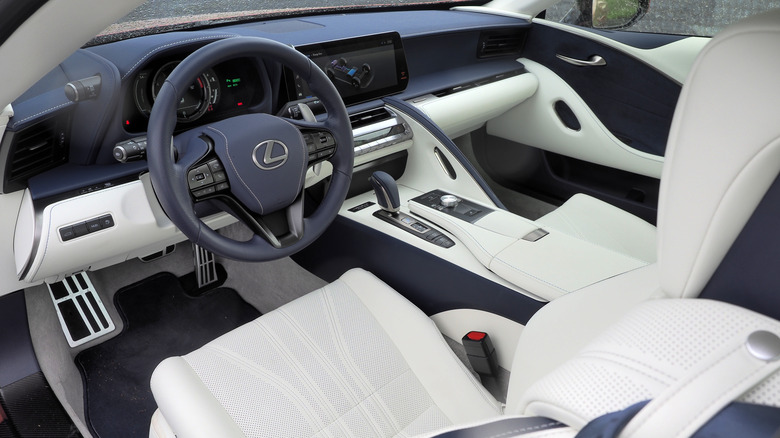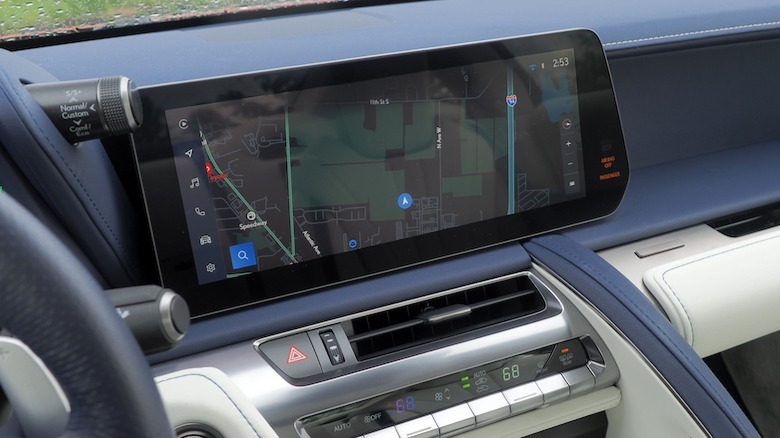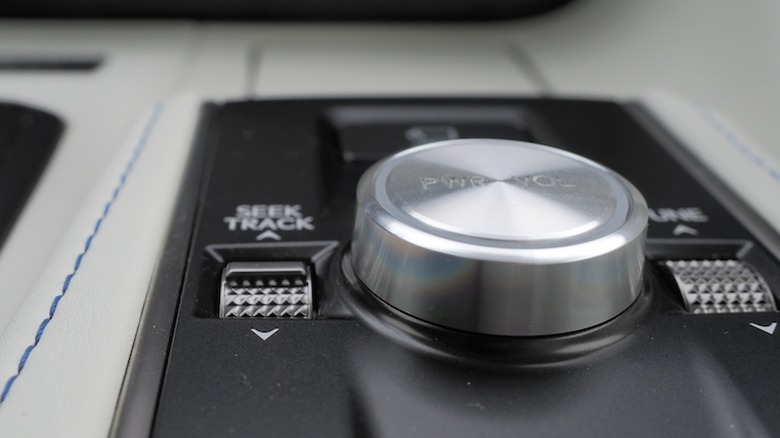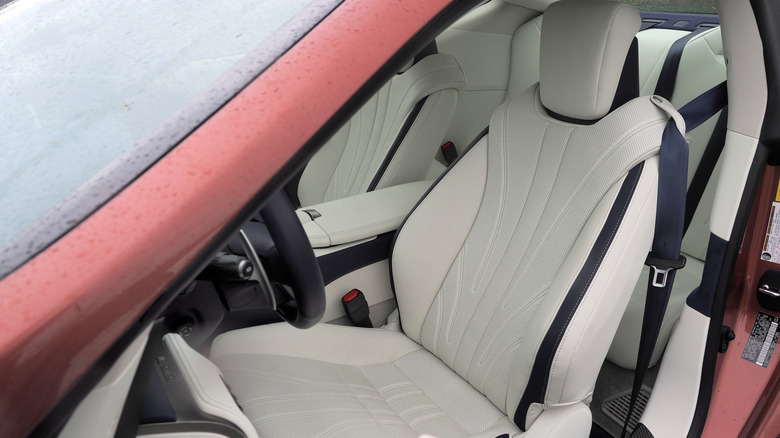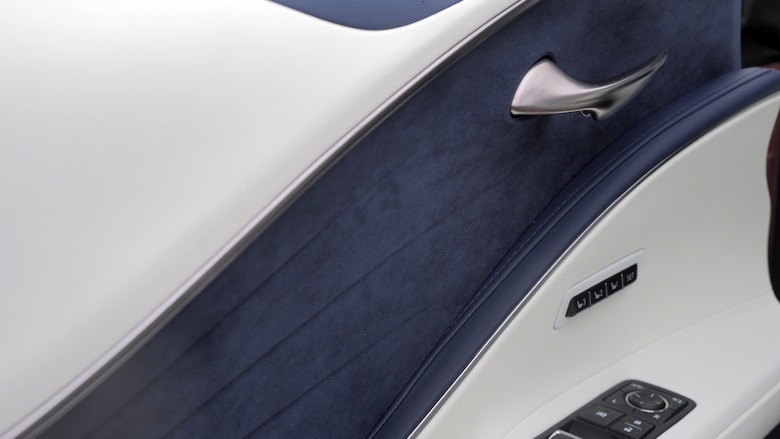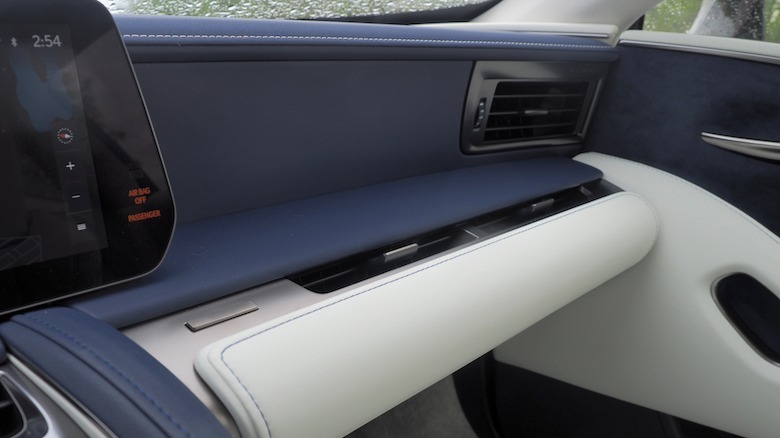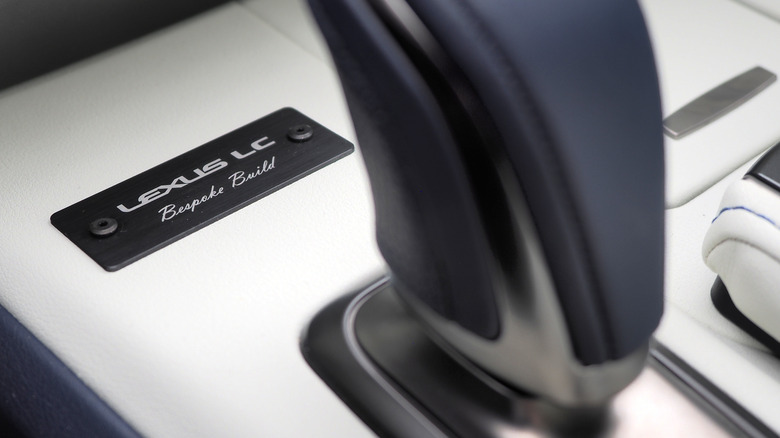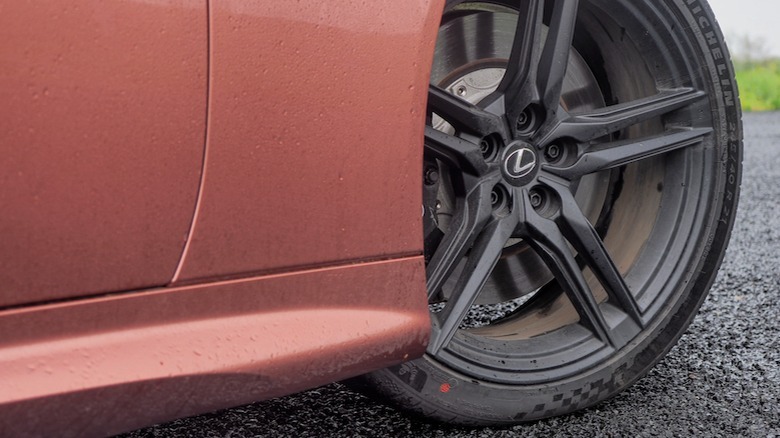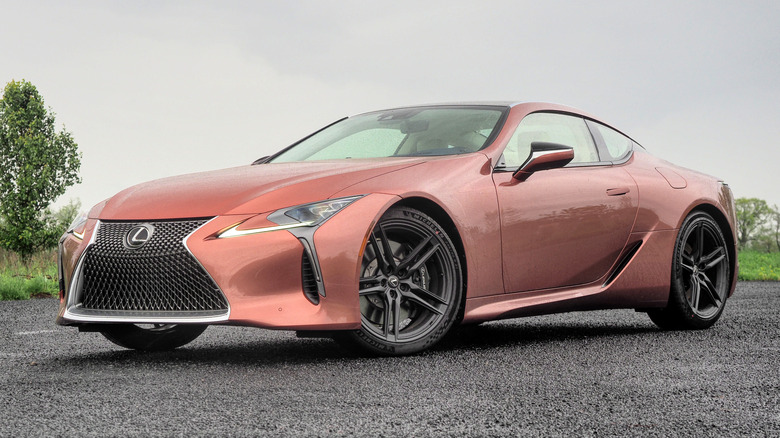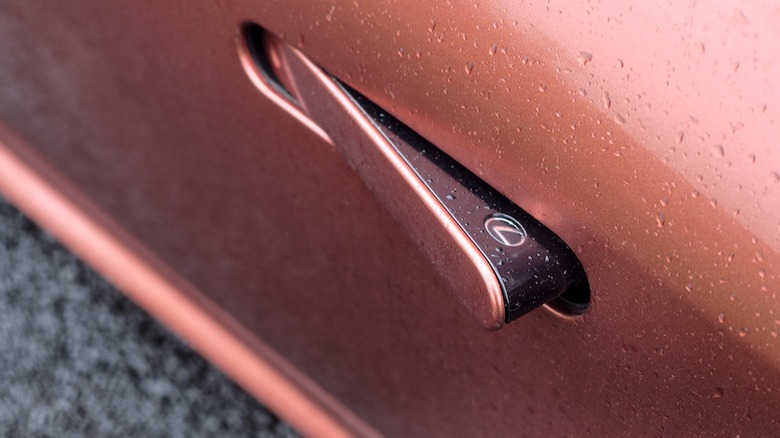2024 Lexus LC 500 Review: Don't Accept Boring
- Concept car looks
- Cabin punches well above the price tag
- A Grand Tourer that knows how to have fun
- Dashboard tech upgrade fixes our biggest complaint
- Hybrid LC 500h isn't as seamless as the LC 500 V8
- Lacks practicality
If, as is almost certainly the case, the court of automotive judgment remains American youth hollering out the side windows of a battered Chevy SUV, then I am happy to report that the Lexus LC 500 has Still Got It. Turns out, the secret to an enduring design is to knock it out of the park on day one. If you can surprise even your most enthusiastic brand advocates in the process, all the better.
Time has been kind to the LC's aesthetic, even if it's not quite as jaw-droppingly shocking as it was when Lexus unveiled the production coupe in 2016. Based on the astonishing LF-LC Concept first rolled out four years prior, the sinuous two-door put to rest not only questions of whether the iconic LFA had been a lucky fluke, but if Lexus had the bravery and engineering talent to translate a one-off show car into something not only production-ready but relatively affordable.
Fast forward to 2024, and other automakers have caught up with the LC's outsized grille; the coupe's dramatic proportions no longer seem so impossible. The arrival of a convertible version — answering yet another question as to whether Lexus could gracefully chop off the roof (spoiler: they could) — in 2019 cemented the LC's reputation as boulevard cruise-ready.
Let's get serious for a moment
Meanwhile, a willingness to experiment with dramatic (some might say divisive) colors proved the automaker wasn't as staid as many still assume it to be. The Flare Yellow limited edition a few years ago was ample illustration of that, and this example's Copper Crest — a faintly pink-tinged metallic — picks up its baton. Of the people I polled, it was a roughly equal split in favor and against, but everybody had an opinion.
Officially it's a four-seater, though we're in the world of "2+2" here. That generally translates to "save the rear seats for small children, adults you despise, and shopping spree overflows." The latter will probably be most useful, since at most the LC offers 5.4 cu-ft of shallow trunk space. There's less still (4.7 cu-ft) in the LC 500h, while the convertible's folding soft top roof chews it down to a mere 3.4 cu-ft. A dinky Mazda MX-5 Miata, by way of comparison, manages to offer a whole 4.59 cu-ft.
If the paint job split bystanders, the LC's price was invariably met with approving surprise. The 2024 LC 500 starts at $99,800, while the LC 500h kicks off at $103,100 and the convertible from $107,300 (all plus $1,350 destination). Road-ready concept cars are seldom so affordable.
V8 or hybrid V6
Lexus offers two drivetrains for the LC: the original 5.0-liter V8 the coupe launched with, in the LC 500, and a gas-electric hybrid combining a 3.5-liter V6 with two electric motors and a small battery, the LC 500h. The former offers 471 horsepower and 398 lb-ft of torque; the latter 354 horsepower combined, and 369 lb-ft of torque.
Where the LC 500's V8 is coupled with a 10-speed automatic, Lexus did something exceedingly complex with the transmission in the LC 500h. It pairs both a four-speed automatic with an electronically-controlled Continuously Variable Transmission (CVT), that altogether mimics the ratios of a 10-speed.
Either way there's a manual mode — controlled with beautifully finished magnesium paddles — but only the hybrid LC has an EV-only drive option, albeit one that only supports low-speed driving for a relatively short distance.
Unsurprisingly, the LC 500 is faster: Lexus says it'll do 0-60 mph in 4.4 seconds, or 4.6 seconds in convertible form, and keep going to a 168 mph top speed. The LC 500h, meanwhile, does 0-60 in 4.7 seconds and has a top speed of 155 mph. It's only available as a coupe, with no hybrid droptop on offer.
A clear engine winner
Having spent time in both the V8 and V6-hybrid versions of the LC, I find myself wondering if Lexus tried to be too complicated for its own good with the LC 500h. Certainly, I can see the appeal of an electrified drivetrain in a grand tourer; and, in a sports car, for that matter. The judicious injection of some instant electric torque can help when a gas engine lacks low-end urgency, and the hybrid's 29 mpg combined economy rating (and slightly larger fuel tank) means road trip pauses to refuel could be far less frequent than the 18-mpg combined of the V8.
In casual driving, the LC 500h lives up to those expectations. The standard-fit adaptive suspension is compliant and poised, firming up as you tweak the high-mounted drive mode dial through the Sport S and Sport S+ settings. The LC isn't light — at 4,420 pounds, the hybrid falls in-between the 4,340 pound V8 coupe and the 4,540 pound convertible — but it dances through corners and between roundabouts with delightful aplomb, balanced and assured.
Press harder, though, and the hybrid system can feel wrong-footed. The hectic whine of the roused V6 sounds frantic, gear selection seems haphazard, and the whole thing just comes across as a little more desperate than the supple and linear power delivery from the big V8. The LC 500h isn't slow, but it just isn't as much fun to drive more aggressively like the LC 500 is.
The LC's most annoying misstep is fixed
The biggest change to the LC — and arguably the fix to the big complaint most people had about the car — is found inside. Gone is Lexus' old, little-loved infotainment system and its finicky touchpad navigation. It's replaced by the same software and hardware we've seen on other recent Lexus vehicles: a 12.3-inch center touchscreen (2-inches larger than the old display), with a far more intuitive UI, remote app support, and wireless Apple CarPlay and Android Auto.
There's still a physical volume knob and controls for skipping tracks, but Lexus has wisely used the space its old touchpad and related controls occupied for dedicated shortcuts to the seat heating and ventilation settings, and to summon the standard 360-degree camera view.
It's enough to elevate the LC's cabin from "beautiful but flawed" to something close to glorious. Lexus had already demonstrated it could build a charming, cohesive interior — featuring swathes of high-quality leather, microsuede, and real metal — with a sensible balance of physical controls in generally common-sense locations. The new infotainment system is all the refresh necessary to leave it feeling thoroughly modern again (even if I wish, just semi-seriously, that they'd found a place to relocate the analog clock).
A stunning cabin
Leather-trimmed heated and ventilated front seats, dual zone climate control, and leather on the steering wheel are all standard. You pay $1,900 for the lovely white and blue interior, and $3,200 for the Bespoke Build Package. That's a somewhat confusing combination of features and options, plus permission to buy extra options: you can't, for example, get the white and blue upholstery in a non-Bespoke Build LC, and there are select wheel options that fall in that category, too.
Absent from this particular LC 500h is the Dynamic Handling Package ($6,400) with its active rear steering, Torsen limited-slip differential, performance dampers, and performance brakes; it also includes sport seats and swaps the standard glass roof for a carbon fiber version (you can, as seen on this car, pay $2,400 for the roof alone). With the LC 500, I'd say the dynamic extras might be worth it. Here, in the hybrid, I think their omission is fine.
Better, then, to spend $1,220 on the Mark Levinson audio system — sweet-sounding and potent — and perhaps the $900 for the head-up display. Altogether, including the $1,960 21-inch matte black wheels, this review car landed at $116,500 including destination.
Are these really LC rivals?
Expensive? Certainly, though in the grand scheme of things, the LC has always felt like something of a bargain. Concept car looks and a classy interior with — in the LC 500 — an increasingly-rare naturally aspirated V8 engine help the Lexus stand out, as does the fact that figuring out its natural competition isn't especially easy.
It's cheaper than Porsche's base 911 Carrera (from $114,400), looks more interesting, and has a nicer interior; the LC leans further into grand tourer territory than the 911, though. A BMW M850i (from $106,300) is also more sporting, though goes without the head-turning aesthetic, and the Lexus' cabin is nicer. Maserati's latest GranTurismo has 2+2 seating and a GT spirit, but starts at $158k; Karma's peculiar GS-6 is a plug-in hybrid, but to say its maker lacks Lexus' solid reputation is an severe understatement.
What I'd really love to see, though, would be a fully-electric version of the LC. None of the confused complexity of the hybrid LC 500h, just the swift immediacy of a pure EV. Sadly, it feels like a surprise that Lexus even bothered to update the LC's interior tech, given overall sales.
2024 Lexus LC 500 Verdict
In 2023, in the U.S., Lexus sold 1,798 of the LC. Of that number, just 37 were hybrids. Sports cars and grand tourers are seldom big business, true, and rarity pays dividends for drivers hoping to avoid seeing their exact same car coming in the other direction. Nonetheless, it demands a degree of commitment from an automaker to not simply throw in the towel.
That would, in the case of the Lexus LC, be a terrible shame. Even if the hybrid version of the car wouldn't be the one I'd pick. The combination of genuinely interesting style with old-school naturally-aspirated V8 charm, paired with interior quality which competes with exotica double the Lexus' price, makes for a beguiling option in a market that increasingly seems staid and cautiously pragmatic.
It's not perfect, of course, though it has personality. Its idiosyncrasies — with the correction of the infotainment in this 2024 update — are endearing, rather than deal-breakers. While I've driven the Porsche, and BMW, and Mercedes cars that are ostensibly the Lexus' counterparts, none has attracted attention in the same way as the LC. I'm not sure there's much more we can ask for, beyond that Lexus ignore the sensible path and continue to offer this magnificent oddity.
